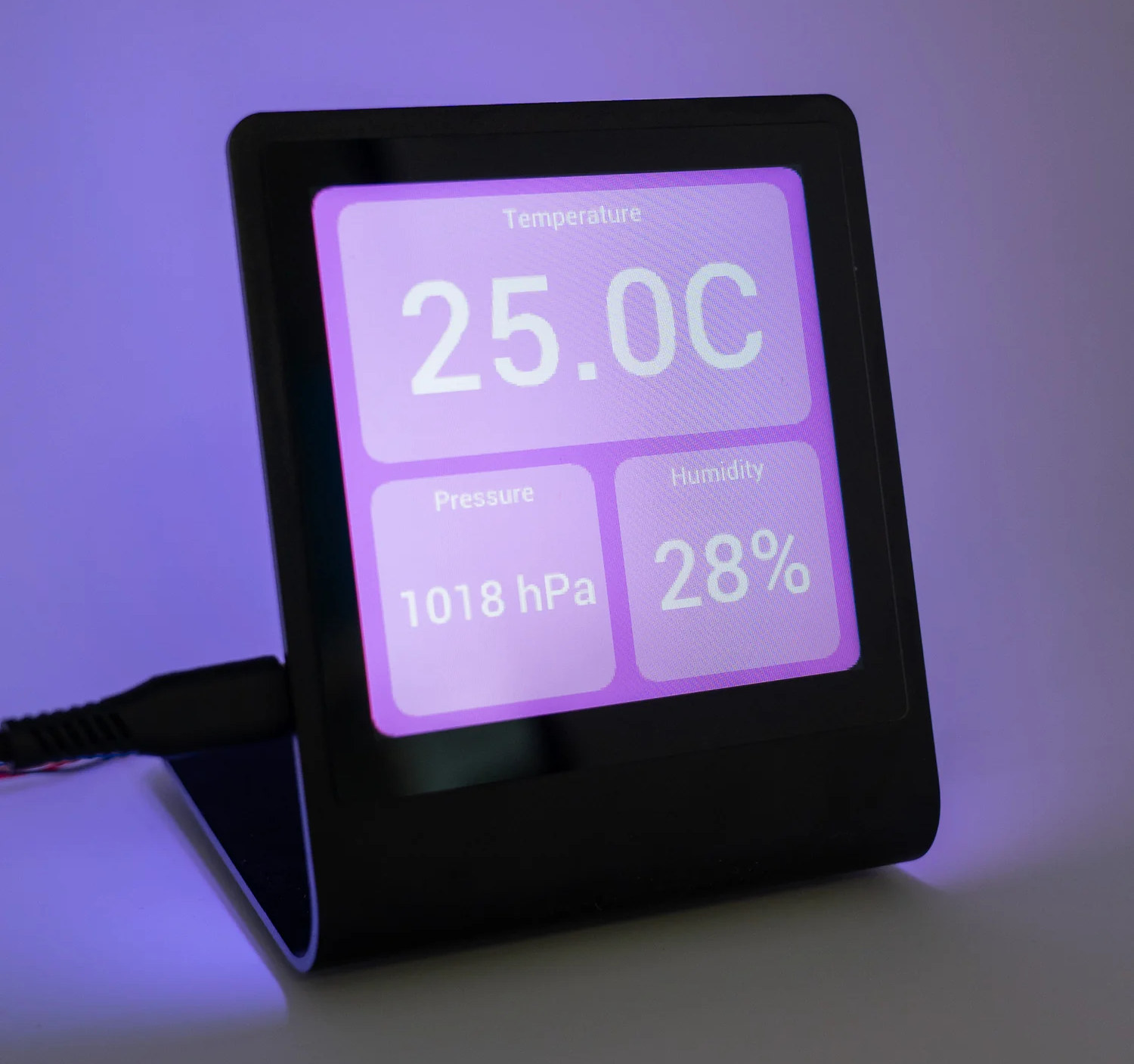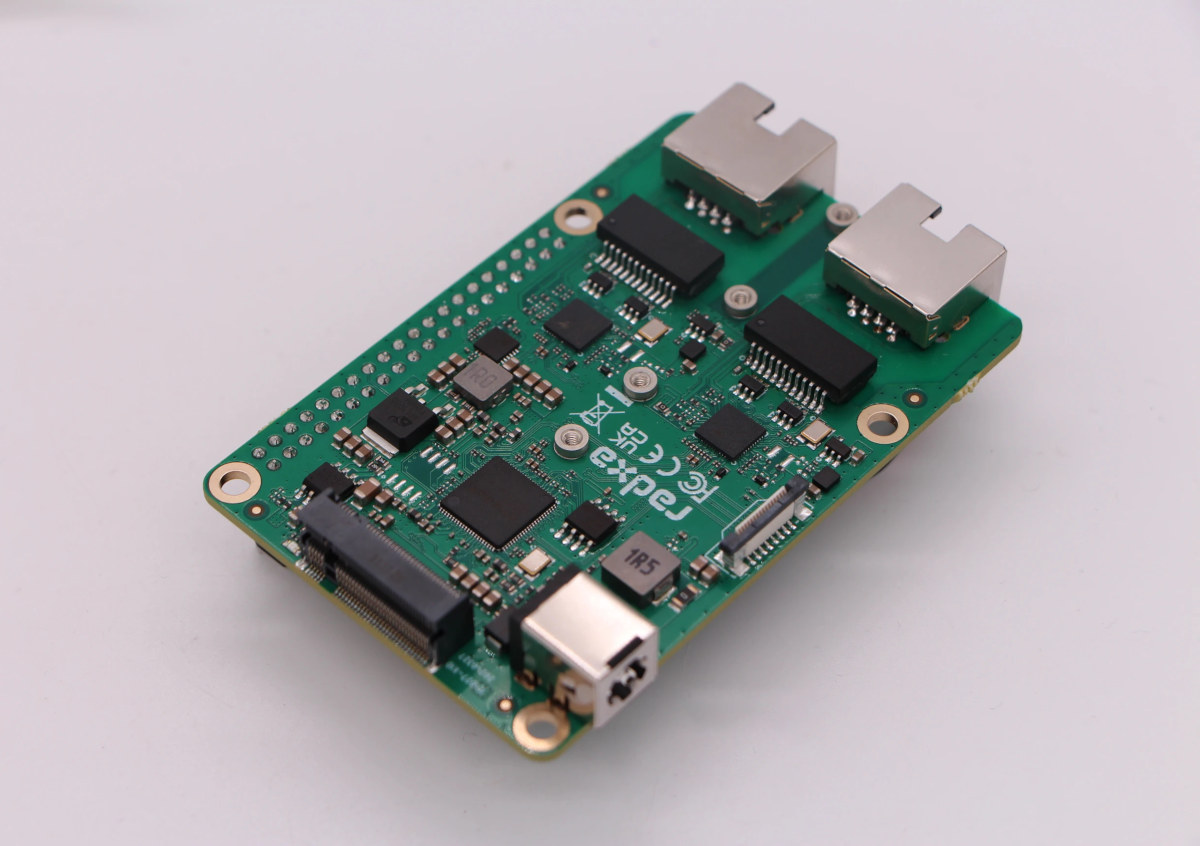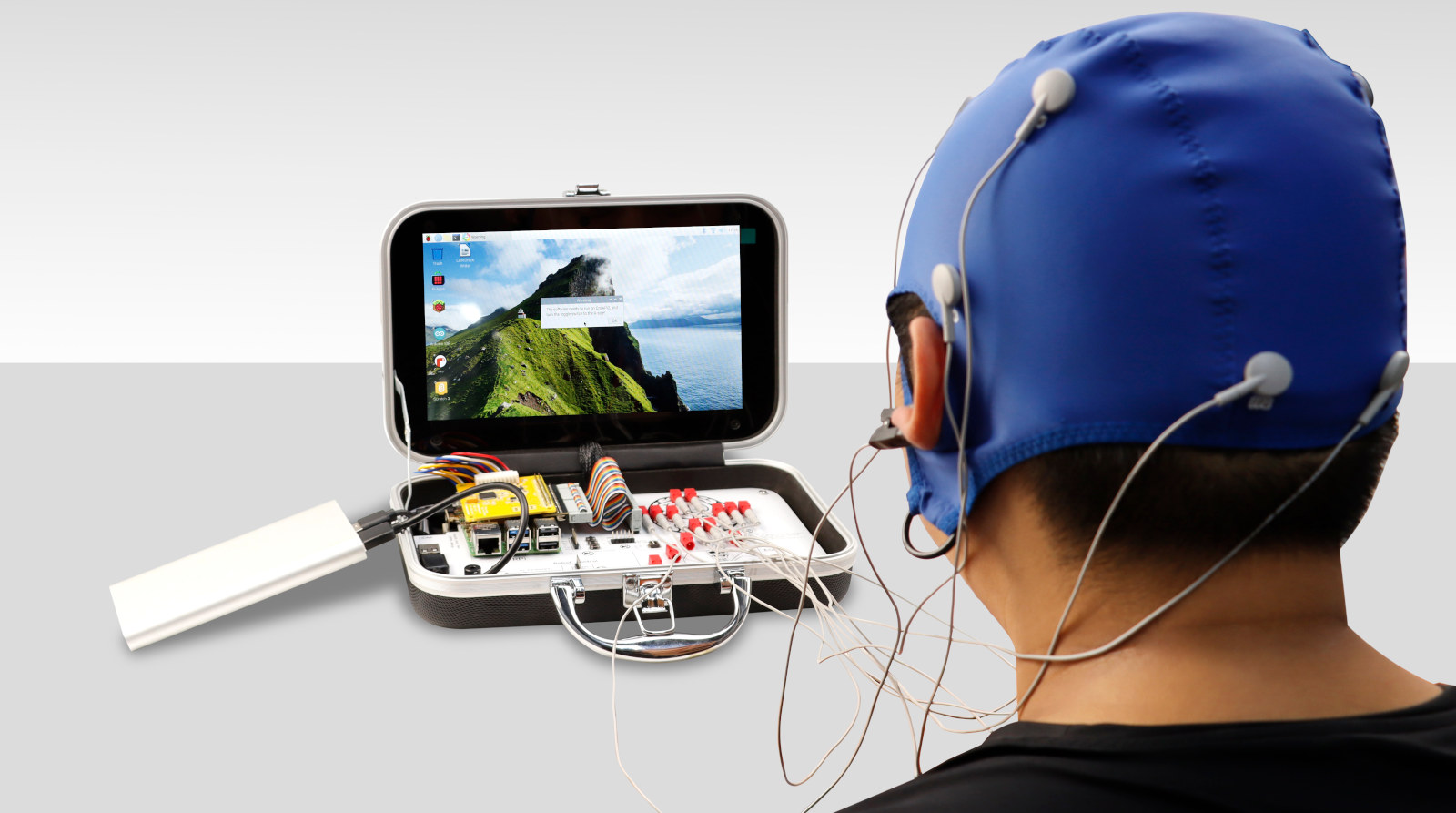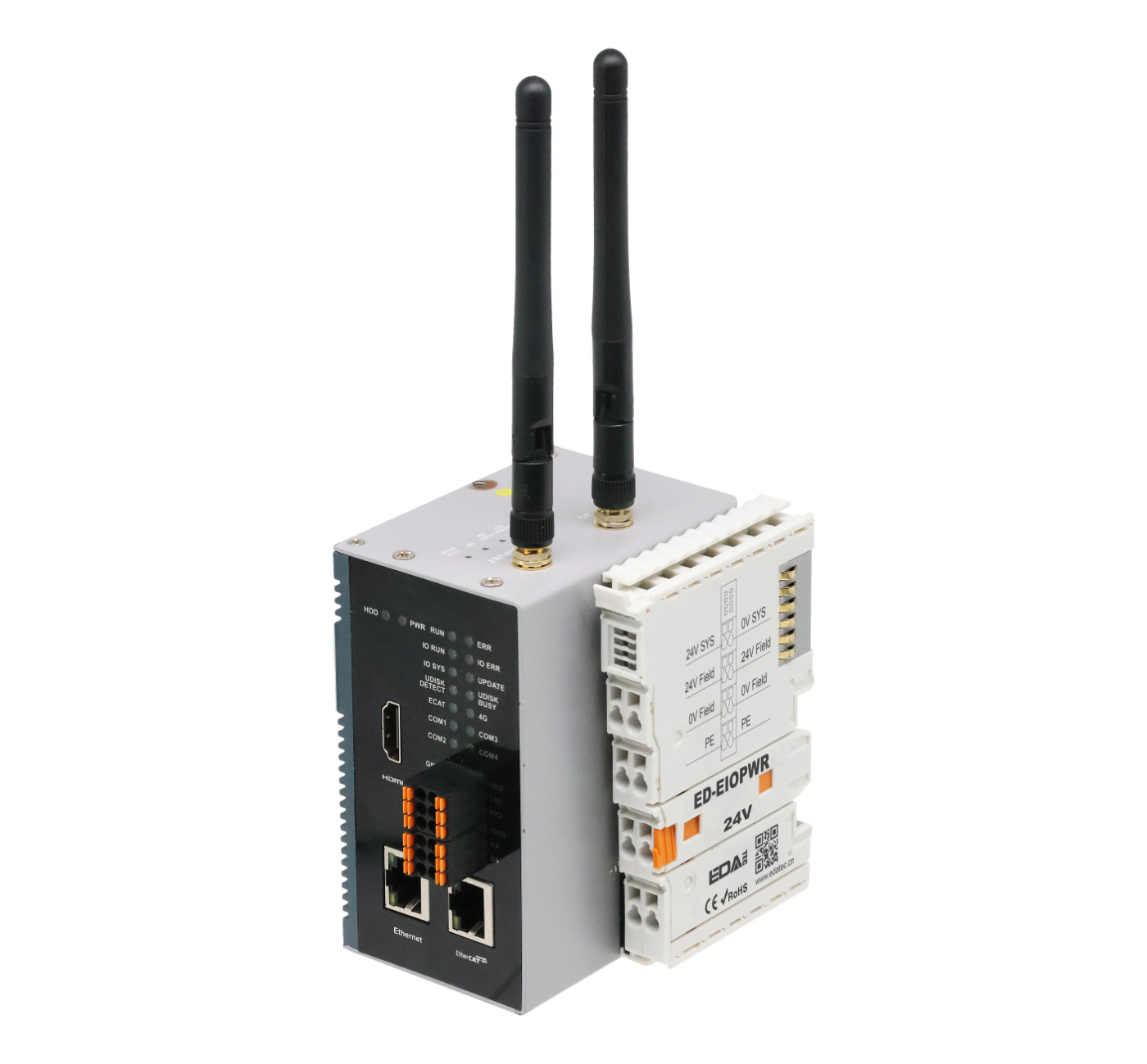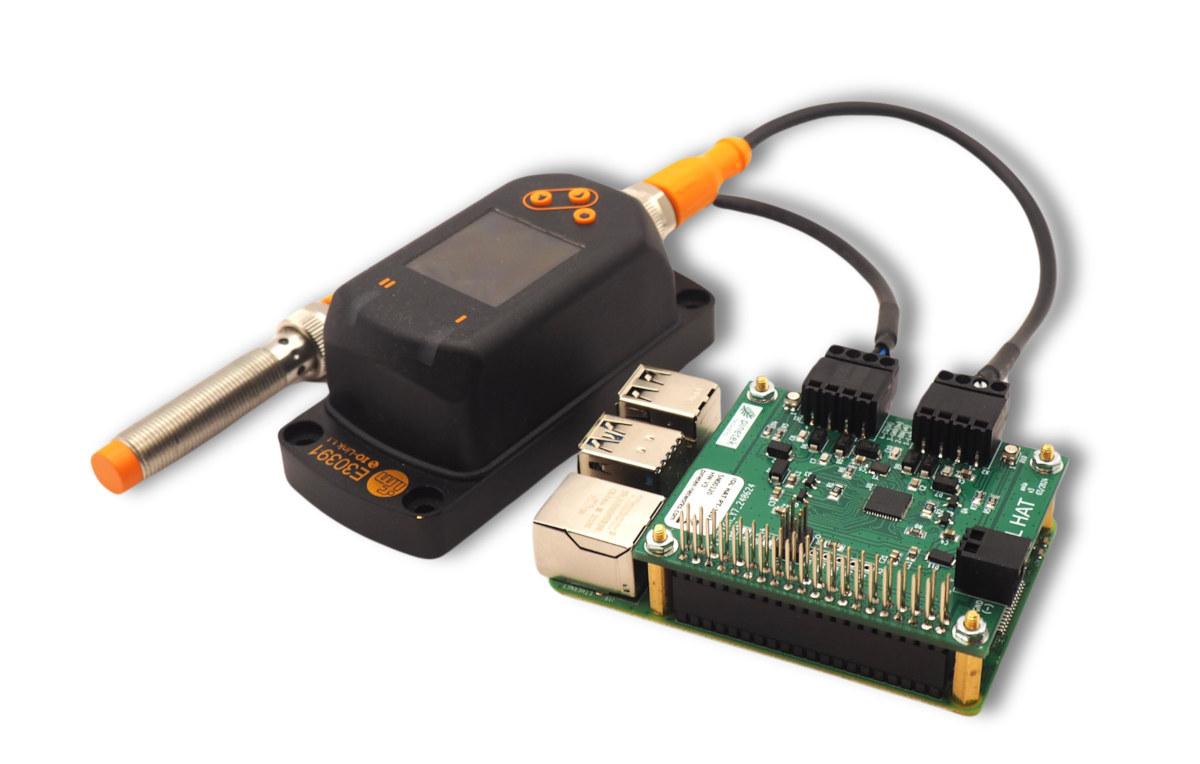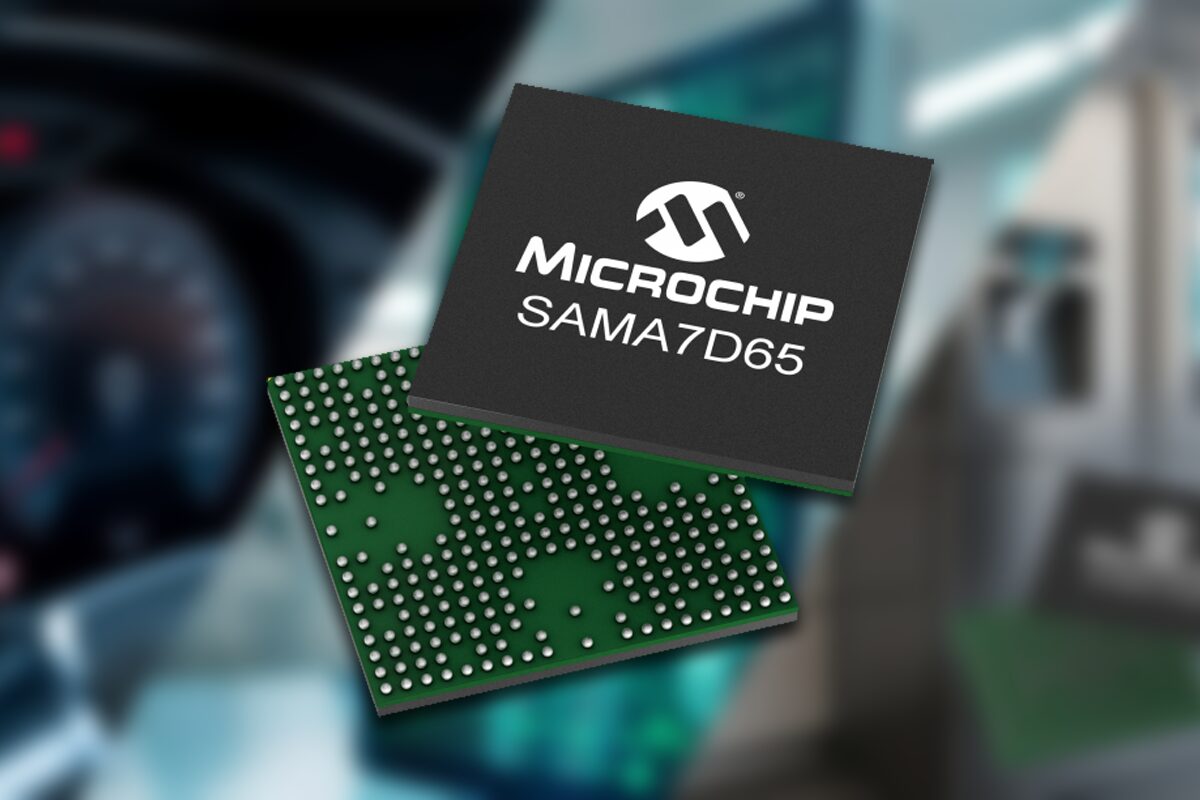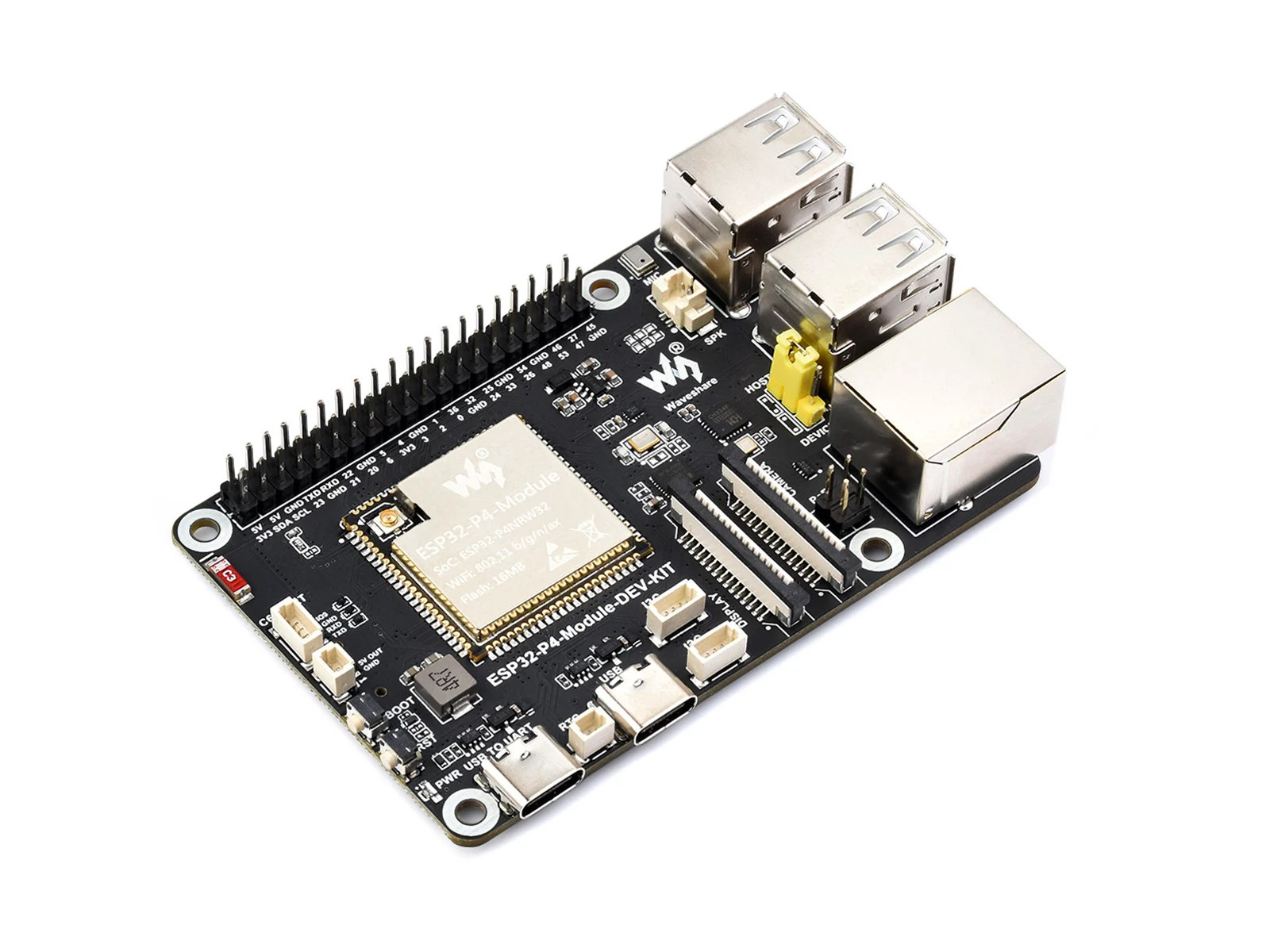Pimoroni Presto is a 4-inch desktop color touch display powered by a Raspberry Pi RP2350 microcontroller, and equipped with a Raspberry Pi RM2 wireless module for WiFi 4 and Bluetooth connectivity. The display comes with 16MB of SQPI flash and 8MB of PSRAM, seven RGB LEDs for ambient lighting, a microSD card slot, a piezo speaker, a Qwiic/STEMMA QT connector for expansion, a USB-C port for power and programming, and a 2-pin JST connector for an optional battery. Pimoroni Presto specifications: Microcontroller – Raspberry Pi RP2350B MCU CPU Dual-core Arm Cortex-M33 @150MHz with Arm Trustzone Dual-core 32-bit Hazard3 RISC-V @ 150MHz Up to two cores can be used at the same time Memory – 520KB SRAM Package – QFN-80; 10×10 mm Memory – 8MB PSRAM Storage 16MB QSPI flash MicroSD card slot Display – 4-inch square IPS LCD screen with 480 x 480 resolution, capacitive touchscreen Wireless – Raspberry Pi […]
Radxa Dual 2.5G Router HAT adds 2.5GbE networking and M.2 NVMe storage support to Raspberry Pi 5-compatible SBCs
The Radxa Dual 2.5G Router HAT is an expansion board adding 2.5GbE networking and an M.2 PCIe x1 socket for NVMe SSD storage to the Raspberry Pi 5 and compatible SBCs with a PCIe FFC connector. We had previously seen Raspberry Pi 5 HATs with 2.5GbE such as the Pineberry HatNET! 2.5G, or even one with 2.5GbE and NVMe SSD (52Pi W01 U2500 HAT), but the Radxa Dual 2.5G Router HAT is the first to implement two 2.5 Gbps Ethernet ports to enable routing, and also features an NVMe SSD as a bonus. Radxa Dual 2.5G Router HAT specifications: Supported SBCs – Raspberry Pi 5, Radxa ROCK 2F, Radxa ROCK 2A, Radxa ROCK 5C, the upcoming Radxa 4D (RK3576), and potentially others PCIe Switch – ASM2806 PCIe 3.0 switch chip with PCIe Gen3 x2 upstream and four PCIe 3.1 lanes downstream up to 8GT/s Storage – 1x M.2 M-Key socket […]
T-Pico-2350 is a fully integrated devkit with Raspberry Pi RP2350, ESP32-C6, 2.33-inch color touchscreen display, and HDMI video output
LILYGO T-Pico-2350, also called the T-Pico2, is a fully enclosed devkit based on Raspberry Pi RP2350 MCU, an ESP32-C6 SoC for wireless connectivity, a 2.33-inch capacitive color touchscreen display, and an HDMI (DVI) video output port. The design is an update to the T-PicoC3 introduced in 2022 with the case design of the T-Display S3 Pro, and the devkit also features a microSD card slot, a USB-C port for power and programming, two GPIO headers, a 13-pin GPIO FPC connector, two Qwiic I2C/UART connectors, and a PMU for battery management. T-Pico-2350 specifications: Microcontroller – Raspberry Pi RP2350A CPU Dual-core Arm Cortex-M33 @ 150 MHz with Arm Trustzone, Secure boot OR Dual-core RISC-V Hazard3 @ 150 MHz Up to two cores can be used in any combination Memory – 520 KB on-chip SRAM Storage 16MB SPI flash connected to RP2350 MicroSD card slot Display – 2.33-inch color IPS LCD (ST7796S SPI […]
PiEEG kit – A Raspberry Pi 5-based bioscience lab in a suitcase (Crowdfunding)
Yesterday we wrote about using quantum sensors for brain-computer interfaces (BCI) and other biomedical applications. But that’s the future, and if you want to experiment with brain-computer interface technology and bioscience, the PiEEG kit has everything you need to get started, with all components fitting in a suitcase easy to carry around between your home and university or school. The bioscience home lab is based on the PIEEG Shield for Raspberry Pi introduced in 2023, and features a Raspberry Pi 5 8GB, a 9-inch display, a sensor board, EEG electrodes and cables for brainwave measurement, and electrodes for EMG (muscles), EKG (heart), and EOG (eye) signal recording. The PiEEG kit is comprised of the two main custom boards with the following specifications/features: PiEEG Shield on top of the Raspberry Pi 5 ADC – Texas Instruments ADS1299 Analog-to-Digital Converter for biopotential measurements Host interface – 40-pin GPIO header with SPI protocol […]
Raspberry Pi CM4-powered CODESYS industrial controller supports EtherCAT, Modbus, up to 32 I/O modules
EDATEC ED-PLC2010 is an industrial controller powered by a Raspberry Pi CM4, supporting EtherCAT and Modbus interfaces, up to 32 I/O modules, and preloaded with CODESYS runtime for real-time core and visualization capabilities. DIN Rain-mountable Raspberry Pi CM4 industrial controllers are not exactly new, with products such as Modberry 500 CM4 and Edgebox-RPI4 announced shortly after the launch of the Raspberry Pi Compute Module 4 in 2020. More recently (2024), Seeed Studio introduced the reComputer R1113-10 IoT gateway, and Sfera Labs launched the Strato Pi Max. TECHBASE also upgraded the Modberry 500 with a more powerful CM5 module. EDATEC ED-PL2010 mostly differentiates itself by shipping with a licensed version of CODESYS runtime for industrial automation. It’s also possible with other vendors, but the license might need to be purchased separatly. EDATEC ED-PLC2010 specifications: SoM – Raspberry Pi CM4 SoC – Broadcom BCM2711 CPU – Quad-core Cortex-A72 SoC @ 1.5GHz GPU […]
IOL HAT adds an IO-Link compatible master to Raspberry Pi for industrial IoT sensors and actuators
Pinetek Networks’ IOL HAT is a Raspberry Pi expansion board using the IO-Link (IEC 61131-9) protocol to interact with industrial sensors. It’s based on the Analog Devices MAX14819 IO-Link master transceiver and offers two SDCI (“Single-Drop Digital Communication”) connectors. While work on the IO-Link communication protocol started in 2006, and the IEC 61131-9 “Single-drop digital communication interface (SDCI) for small sensors and actuators” standard was adopted in 2013, it only recently came onto our radar with products like the STMicro EVLIOL4LSV1 IO-Link actuator board and Renesas CCE4511 IO-Link master and ZSSC3286 IO-Link sensor signal conditioner. The IOL HAT brings the IO-Link standard for industrial IoT communication to the Raspberry Pi. IOL HAT specifications: IO-Link chip – Analog Devices MAX14819 dual IO-Link master transceiver with integrated framers and L+ supply controllers 2x SDCI ports for IEC 61131-9 (IO-Link) sensors and actuators Host connection (one or the other) PT-1201 model – 40-pin […]
Microchip SAMA7D65 Cortex-A7 MPU comes in SoC and SiP packages with up to 2Gbit integrated DDR3L memory
Microchip has recently released the SAMA7D65 MPU, a high-performance Arm Cortex-A7 embedded processor designed for HMI and connectivity applications across industrial, home, medical, and appliance markets. The MPU is available in both System-in-Package (SiP) and System-on-Chip (SoC) variants and features various display interfaces, including MIPI DSI, LVDS, and 8-bit Serial RGB interfaces, along with a 2D GPU for graphical acceleration. Memory and storage options include support for 16-bit DDR2/DDR3/DDR3L and LPDDR2/3 memory, optional 1 Gbit or 2 Gbit DDR3 RAM, NAND Flash, eMMC Flash, and SD card. It features dual Gigabit Ethernet with TSN support, an I3C controller, five CAN-FD interfaces, and three high-speed USB ports. Additionally, it comes with various security features, including physically unclonable function (PUF), secure boot, key storage, and cryptographic accelerators for AES, SHA, RSA, and ECC. Microchip SAMA7D65 SoC/SiP specifications: CPU – Arm Cortex-A7 core up to 1 GHz Arm TrustZone, NEON, FPU 32KB L1 I-cache […]
ESP32-P4 credit card-sized board features Ethernet, WiFi 6, four USB ports, 40-pin GPIO header, MIPI DSI and CSI connectors
Waveshare ESP32-P4-Module-DEV-KIT credit card-sized board may look like a Linux-powered Raspberry Pi SBC, but instead, it’s based on an “ESP32-P4-Module” comprised of a 400 MHz Espressif ESP32-P4 RISC-V general-purpose microcontroller, an ESP32-C6 “co-processor” for WiFi 6 and Bluetooth 5, and a 16MB SPI NOR flash. Designed for HMI applications, the board offers MIPI DSI and CSI connectors, as well as a 100Mbps Ethernet RJ45 jack, four USB 2.0 ports, a 40-pin GPIO header, and more. It basically integrates the same ports as a Raspberry Pi SBC minus HDMI, but relies on a microcontroller instead of a Linux-capable application processor. Waveshare ESP32-P4-Module-DEV-KIT specifications: ESP32-P4-Module Microcontroller – ESP32-P4NRW32 MCU Dual-core RISC-V microcontroller @ 400 MHz with AI instructions extension and single-precision FPU Single-RISC-V LP (Low-power) MCU core @ up to 40 MHz GPU – 2D Pixel Processing Accelerator (PPA) VPU – H.264 and JPEG codecs support Memory – 768 KB HP L2MEM, […]


